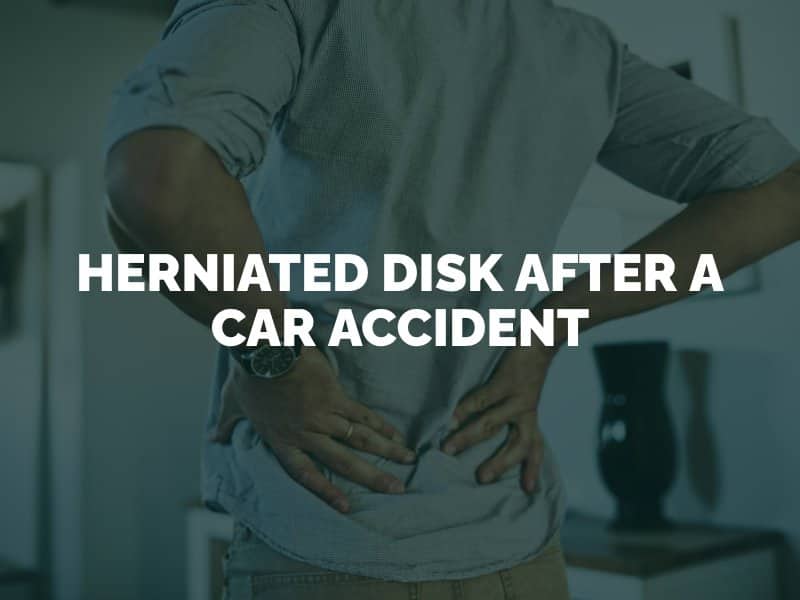A herniated disk is a common injury associated with car accidents. It is a type of back injury that can cause significant pain, discomfort, chronic pain, disability and even paralysis, in the worst cases. If you or a loved one suffers a herniated disk in a car accident, you may have the right to file a claim to pay for your related medical bills, lost wages and other expenses. Here’s what you need to know about this injury.

A herniated disk, also known as a ruptured disk, is a type of spinal cord injury. The spinal cord is composed of 33 vertebrae, with disks in between each to cushion them and facilitate smooth movement. Spinal disks are hard on the outside and soft on the inside, similar to a jelly donut. When a source of trauma, such as a car accident, crushes a vertebra into your spinal canal, it can compress one of the rubbery disks. This pressure can cause the soft inner center of the disk (the nucleus) to push out or herniate through a tear in the harder exterior (the annulus).
The forces exerted on a victim in an automobile accident are often enough to injure one or more parts of the spinal cord. If the spine is crushed in a crash, for example, this can compress the stacked vertebrae and spinal disks and damage or rupture them. Other common causes of herniated disks are physically demanding jobs, repetitive lifting or twisting, and falls.
A herniated disk is typically marked by pain. This pain can occur immediately after the car accident or come later, after the adrenaline from the crash has worn off. In some cases, a crash survivor may have injured or weakened a disk in the accident, only to rupture it later when trying to lift something heavy. Herniated disk symptoms include:
In some cases, patients don’t notice any symptoms and are only diagnosed after an x-ray. Herniated disks are most common in the lower portions of the spinal cord, such as the lumbar or thoracic spine. However, they can also occur in the upper spine (the cervical spine).
Treating a herniated disk often involves medications to relieve pain and muscle spasms, as well as physical therapy. Most patients heal ruptured disks within a few weeks. In some cases, a patient may require surgery to remove the protruding portion of the disk (or the entire disk) if conservative treatments fail after several weeks. If a herniated disk is severe or comes with complications, however, a victim may experience chronic pain or paralysis.
If you still have questions about a herniated disk after a car accident in Colorado, contact Fang Accident Lawyers to request a free consultation with one of our Denver personal injury attorneys. We are here to help.